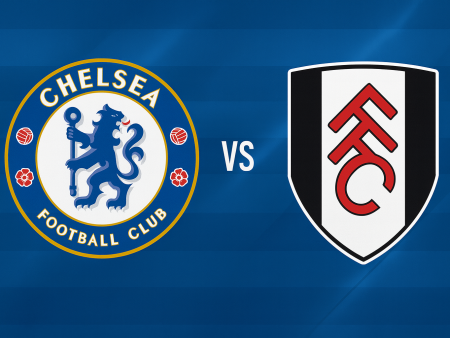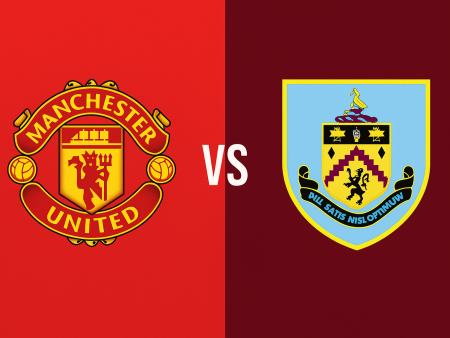Reassessing Manchester United’s Midfield: The True Value of Fred and McTominay
Amidst ongoing debates about Manchester United's squad composition, a persistent narrative continues to single out Fred and Scott McTominay as the weak link in the club’s midfield. Critics are quick to call for superstar replacements, yet these assessments often overlook both the duo’s strengths and the broader context of squad-building at the highest level. This analysis examines why Fred and McTominay deserve more appreciation and explores the dangers of undervaluing existing talent in the relentless pursuit of new signings.
The Reality of United’s Midfield - Perception vs. Performance
Much of the present discourse around Manchester United centers on their midfield pairing, frequently held up as a sign of underachievement when compared to rivals like Chelsea, Liverpool, and Leicester. It’s true that United’s recent transfer activity has focused on positions outside the central midfield-leaving a perceived “gap” that critics say must be filled externally. Yet, casting Fred and McTominay as scapegoats ignores both their contribution and the importance of squad chemistry.
When evaluating Premier League midfields, there are indeed outstanding combinations-such as Chelsea’s Kovacic and Jorginho (with Kante as a world-class enrichment), Leicester’s Tielemans and Ndidi, or West Ham’s Rice and Soucek. Individually some may outperform United’s regular pair, but outside a select handful, few teams truly boast superior balance or cohesion. Instant replacements with star names would not automatically resolve deeper tactical issues and, more importantly, could disrupt an understanding built up over seasons.
The Importance of Chemistry in Central Midfield Partnerships
Fred and McTominay have spent years developing an on-field rapport under Ole Gunnar Solskjaer. Their reading of each other’s movements, positional awareness, and adaptability allow United to cover defensive gaps while linking play forward. Such familiarity cannot be recreated overnight with new arrivals-regardless of individual talent.
History illustrates that simply parachuting in midfielders with elite resumes does not guarantee success in Manchester. Examples like Morgan Schneiderlin and Marouane Fellaini, both recruited amid similar fan optimism, failed to deliver the anticipated boost after moving from smaller clubs. What works in one tactical environment doesn’t always translate to another, especially at a club with United’s expectations and structure.
Furthermore, player skillsets are often context-dependent. Tomas Soucek’s aerial dominance is ideal at West Ham but might be underutilized at United; Tielemans thrives off a striker like Vardy’s direct runs, whereas United’s forward dynamic is different, particularly with Cristiano Ronaldo preferring the ball into his feet.
Why Clubs and Fans Overlook Existing Talent
This phenomenon-overlooking internal options in favor of hypothetical solutions-is not unique to supporters. Club leadership, managers, and recruitment teams display the same tendency to chase the ‘next big thing.’ Chelsea’s recruitment provides a timely example: Despite boasting one of Europe’s premier midfield groups, the club purchased Saul Niguez from Atlético Madrid while sending promising talents like Conor Gallagher and Ruben Loftus-Cheek on loan. Ironically, Gallagher has thrived when trusted at Crystal Palace, while Saul has struggled to make an impact at Stamford Bridge.
This tendency extends beyond transfers to managerial decisions as well. Watford, known for an extraordinary rate of coaching changes, have repeatedly sacked managers who were meeting or exceeding realistic club standards-hoping each time for a non-existent leap forward.
The lesson? Imagining that new additions will surely outperform current contributors often leads to instability and neglect of those already delivering value.
The Underrated Strengths of Fred and McTominay
Both Fred and McTominay bring unique qualities that underpin United’s play, even if not always obvious to the casual observer.
- **Fred**: While sometimes erratic in attack transitions, Fred consistently ranks among the league’s most industrious midfielders. His pressing numbers and tackling statistics place him near the top for both efforts applied and successful recoveries. He operates as an engine, frequently disrupting opposition buildup and regaining possession in critical zones.
- **McTominay**: Not known as a specialist, McTominay instead offers a well-rounded profile. His awareness of space, ability to pick a sharp pass, and positional discipline enhance United’s defensive organization in areas where more naturally attacking players like Paul Pogba or Donny van de Beek might struggle.
Replacing such a partnership, especially when team form slips, ignores these essential contributions. It’s vital to separate individual underperformance from structural or system-based issues, such as defending set pieces or coping with rapid counters-areas where tactical solutions matter as much as personnel changes.
Building a Title-Contending Midfield: A Reality Check
There’s no disputing the point that to reach the level of teams like Liverpool and Chelsea, United may eventually require world-class midfield reinforcements. However, elite options such as Fabinho, Henderson, and Kante are rare and already established at top clubs. Discovering the next transformative talent is both difficult and unpredictable.
For now, United’s existing midfielders-especially Fred and McTominay-offer stability and reliability. Cultivating tactical cohesion and addressing systemic flaws will yield more immediate improvement than speculative purchases. Overhauling a functioning partnership for marginal or uncertain gains risks unsettling a foundation that already exists.
Conclusion: Value What You Have Before Seeking Change
Fred and McTominay have, too often, become the default target for Manchester United’s shortcomings in form. Yet, scrutiny shows that the duo represent some of the strongest midfield options in the Premier League outside the absolute elite. Rather than focusing on shiny alternatives or hypothetical upgrades, clubs and fans alike should recognize the value of well-integrated, hard-working players whose contributions enable the team to compete at the top level.
If Manchester United wish to progress, attention should shift toward tactical organization-especially on set pieces and defensive transitions-instead of direct replacements in midfield. Sometimes, the solution isn’t seeing what you could have, but better understanding and utilizing the assets you already possess.













